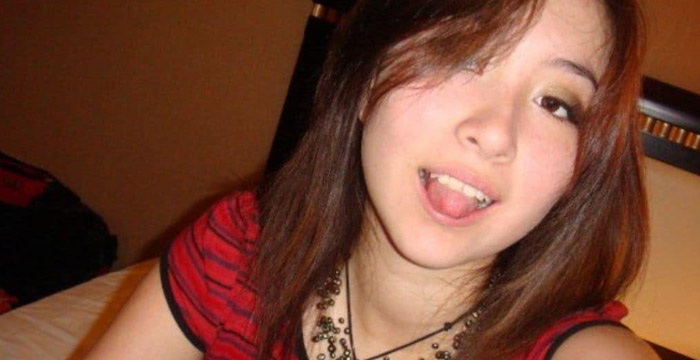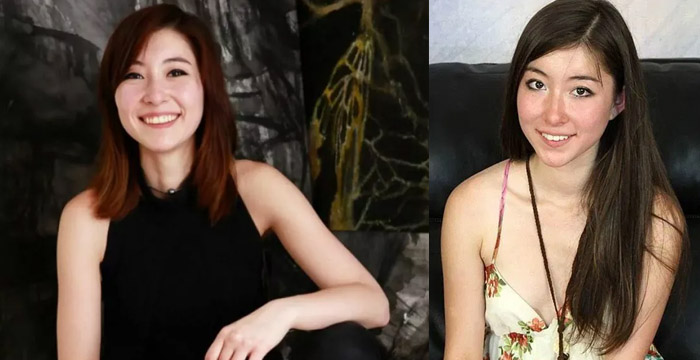Kelly Baltazar’s name has surfaced repeatedly in online discussions surrounding digital privacy, reputation crises, and the consequences of early adult industry involvement. Known for a series of events that include an arrest during her university years, past affiliations with adult content, and repeated efforts to remove explicit materials from the internet, Baltazar’s story illustrates how digital actions and legal incidents can follow individuals long after they’ve stepped away from the public sphere.

Early Background and Family
Kelly Baltazar was born on June 19, 1992, in Los Angeles. Her father reportedly held a senior position at Goldman Sachs, and her mother, Karen Wang, is of Chinese-American heritage. The family’s socioeconomic background placed Baltazar among elite circles, and she eventually enrolled at Georgetown University in Washington, D.C.
Use of Alias and Adult Entertainment Involvement

Before gaining attention for legal or media-related issues, Baltazar participated in adult entertainment under the alias “Mayli.” This included creating explicit online content, some of which remained accessible long after she exited the industry. According to public discussions and media investigations, this period contributed significantly to her later digital reputation challenges. Several users and commentators noted that AI-altered and redistributed images under this alias continued to circulate years later, despite her reported attempts to take them down through legal means.
2018 Arrest and Legal Proceedings
In 2018, while attending Georgetown University, Baltazar was arrested on charges of drug possession. Authorities allegedly discovered 17 grams of marijuana and a small quantity of cocaine in her university residence. The arrest received media coverage due to her family’s profile and her prior internet presence.
Following the arrest, she entered into a Deferred Prosecution Agreement (DPA). This type of legal arrangement allowed her to avoid a formal conviction, provided she fulfilled certain conditions such as completing community service and undergoing counseling. Her name remained tied to the incident in online legal and media databases.
Withdrawal from Public Platforms
After the incident, Baltazar removed herself from public-facing platforms. She deactivated social media accounts, changed her appearance, and reportedly moved to another location. Some reports also indicated that she changed her legal name to distance herself from prior public records.

During this period, she was no longer visible in mainstream or alternative media and did not publicly comment on the events that had occurred. Speculation about her whereabouts continued in Reddit threads and smaller forums, with some claiming she had rebranded entirely and begun working under a new identity.
Re-emergence and Low-Profile Activities
Over time, Baltazar gradually re-entered professional spaces, though not in any overt public capacity. Reports from B2B-focused media outlets suggest she became involved in mental health advocacy and support for digital privacy reform. However, her exact professional affiliations remain unclear.
She has also been linked to various anonymous or pseudonymous media contributions, possibly involving visual arts and independent journalism. These claims are difficult to verify due to her apparent choice to avoid publicity.
Ongoing Digital Exposure and Privacy Issues
One of the most persistent issues tied to Baltazar’s case involves the circulation of explicit images and videos from her past. Some of these materials have been altered using artificial intelligence, including face swaps and synthetic enhancements. Discussions on Reddit and privacy-focused forums have mentioned that even after DMCA takedown efforts, the content frequently reappears on decentralized or foreign-hosted platforms.
This ongoing exposure has been cited in digital privacy articles as a case study illustrating the challenges of permanently removing explicit or reputationally damaging content from the internet, especially in an era where AI-generated content complicates the distinction between authentic and synthetic material.

Mention in Online Communities
Baltazar continues to be referenced sporadically in online communities. Posts in Reddit threads such as r/privacy and r/hapas mention her case in discussions about doxxing, adult content regret, and name-change strategies for managing reputation fallout. Users often highlight her as an example of how difficult it is to regain anonymity once a person’s digital footprint becomes widely distributed and commodified.
Summary
Kelly Baltazar’s case reflects a broader set of issues faced by individuals attempting to recover from public exposure related to adult content, legal troubles, or internet-based harassment. From her early affiliation with adult entertainment to her arrest and subsequent efforts at personal rebranding, her name has remained entangled in public discourse around identity, consent, and the long memory of the internet.
While she has avoided public commentary and visible media participation in recent years, Baltazar remains a subject of interest in discussions on digital safety and post-scandal identity management. Her current activities remain mostly private, and no verified updates confirm her professional or personal status beyond 2024.






